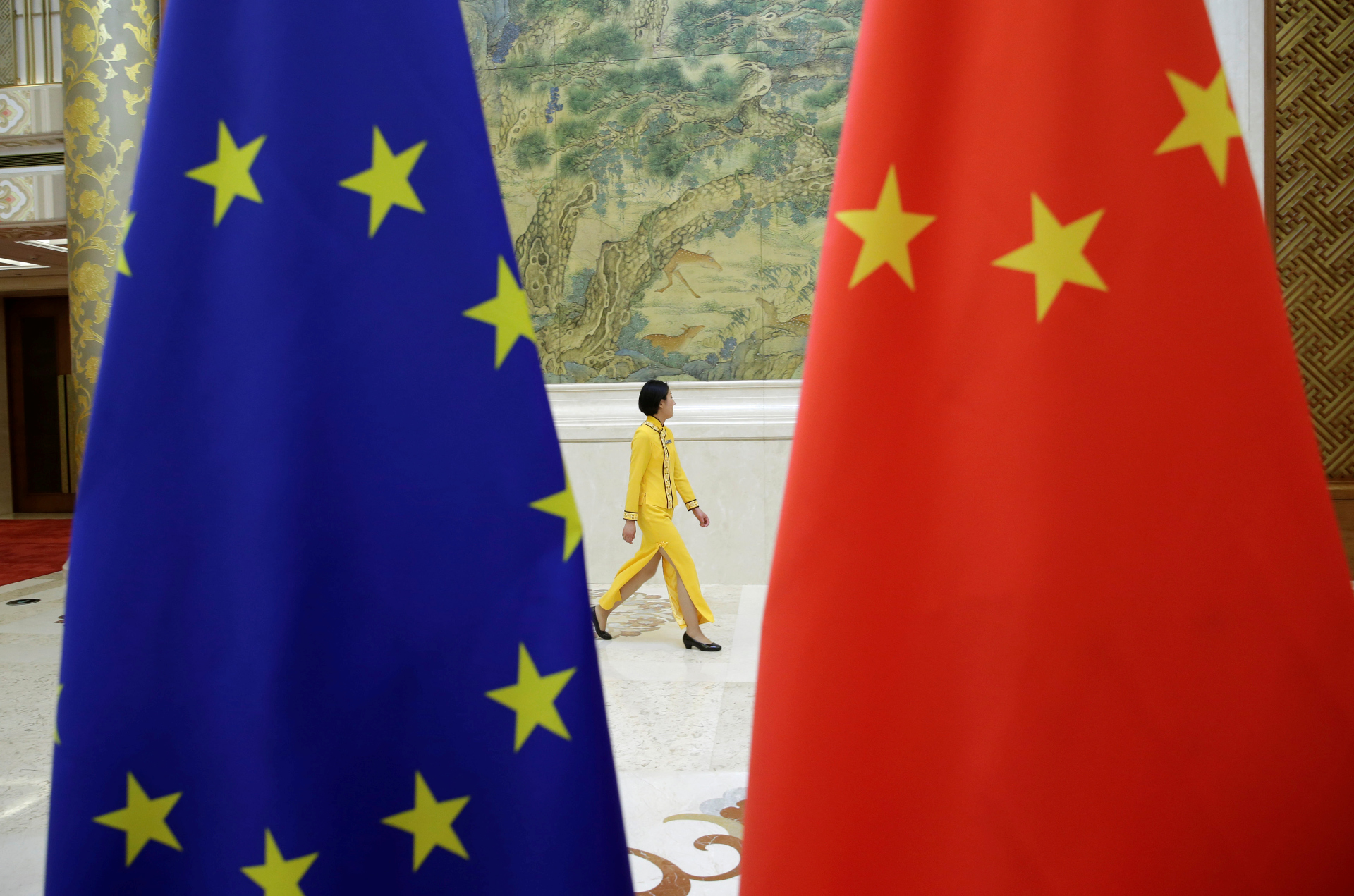European Parliament freezes China investment deal over Beijing’s ‘baseless and arbitrary’ Xinjiang counter-sanctions
The European Parliament overwhelmingly passed a resolution today condemning China’s human rights abuses and counter-sanctions over Xinjiang. Ratification of the EU-China investment deal is off the table, the resolution says, until Beijing removes those sanctions.

The European Union’s relations with China continued a dramatic downward slide today, as the European Parliament overwhelmingly adopted a resolution condemning “baseless and arbitrary sanctions imposed by Chinese authorities on European individuals and entities.”
- The Parliament declared that it had “justifiably frozen” any consideration of ratifying the EU-China Comprehensive Agreement on Investment until Beijing lifted those sanctions.
- The sanctions in question were announced by Beijing two months ago in retaliation for the EU’s sanctions of Chinese officials responsible for abuses against Muslim minorities in Xinjiang. China’s retaliation was widely seen as a significant escalation that put ratification of the investment deal on thin ice.
The full resolution, adopted by a vote of 599-30 with 58 abstentions, contained eight pages of strongly worded criticism of China’s human rights abuses and counter-sanctions:
- The “Chinese measures constitute an attack against the European Union and its Parliament as a whole, the heart of European democracy and values, as well as an attack against freedom of research.”
- “China’s sanctions lack any legal justification,” are “entirely unsubstantiated and arbitrary,” and “are clearly an attempt to deter the EU from continuing its work and action against human rights abuses in China.”
- The “human rights situation in China is at its worst since the Tiananmen Square massacre.”
- China’s sanctions “significantly hindered” the EU’s ability to work to ratify the agreement because they “prevent, as a minimum, the Subcommittee on Human Rights from working with Chinese experts.”
- China’s “confrontational approach” means that “EU-China relations may not continue business as usual.”
The resolution also mentions Hong Kong, noting that “the repression of the political opposition…has continued to worsen” in the city since the parliament made a statement against Beijing’s crackdown in January. The parliament added that it “deplores the lack of unity in the Council of the EU over the adoption of measures to address the crackdown on democracy in Hong Kong” (Hungary has twice blocked such measures).
Finally, the parliament resolution urges “the EU to keep respect for human rights at the core of all its external policies,” and warns that China’s counter-sanctions are “part of an effort to police speech about China worldwide” and “part of a totalitarian threat.”
Key European officials outside of the parliament, such as European Commission Vice President Valdis Dombrovskis and Armin Laschet, the nominee to lead Angela Merkel’s center-right CDU party in Germany after she steps down later this year, seem to agree, if in less harsh terms.
China’s response
Beijing has not yet responded to the official resolution, but on the eve of its passage, the Chinese Foreign Ministry claimed (in English, Chinese) that it is the EU that is “seeking confrontation” and China that is “playing justifiable defense.”
See also:
- G7 playing a ‘dangerous game’ by pushing Moscow towards China – Russian envoy / Reuters
- China and Russia condemn sanctions, accuse West of ‘politicizing human rights issues’ / The China Project
- Lithuanian parliament latest to call China’s treatment of Uyghurs ‘genocide’ / Reuters
“The parliament in Lithuania on Thursday became the latest to describe China’s treatment of its Uyghur minority as ‘genocide,’ voting to call for a U.N. investigation of internment camps and to ask the European Commission to review relations with Beijing.” - Europe is not an easy ally against China, former U.S. trade representative Charlene Barshefsky says / SCMP (paywall)
- EU ministers seek to cement trade ties with Biden team / AP
“EU trade ministers used a virtual meeting with U.S. trade representative Katherine Tai to highlight the breakthroughs in the longstanding dispute over airplane production subsidies and a fight over steel tariffs.”






